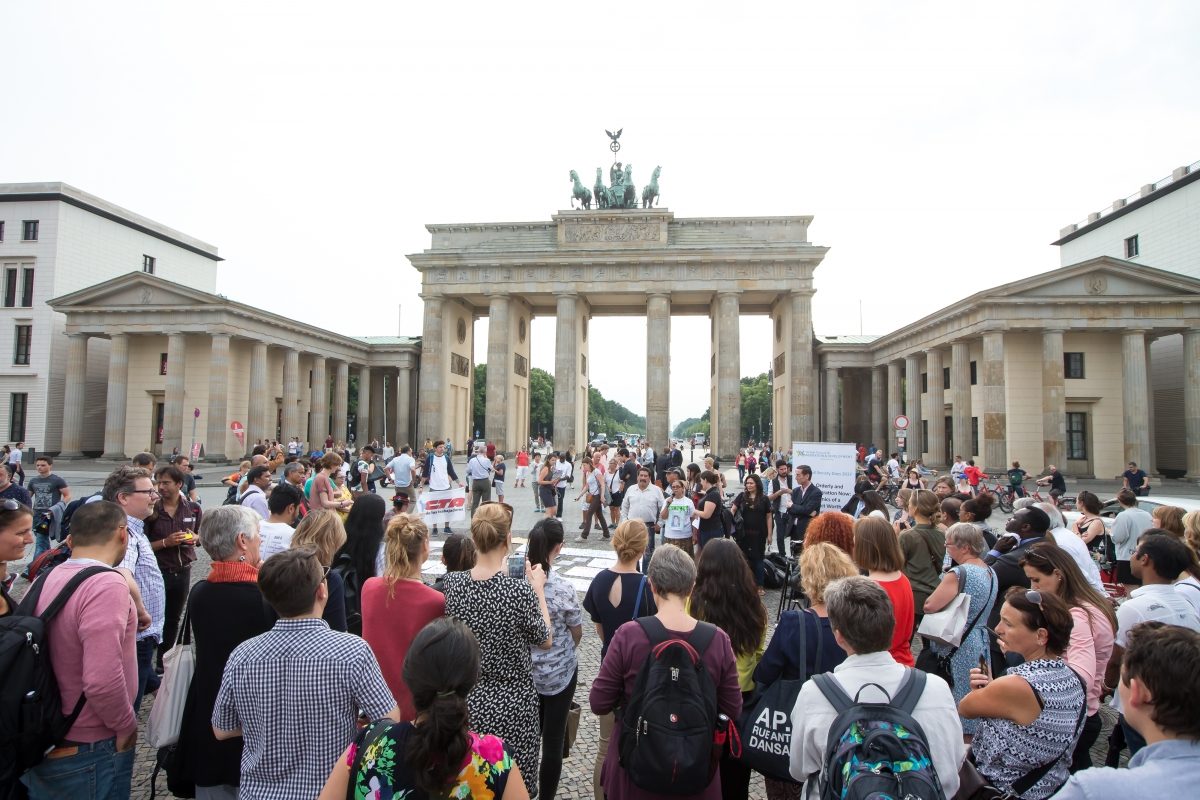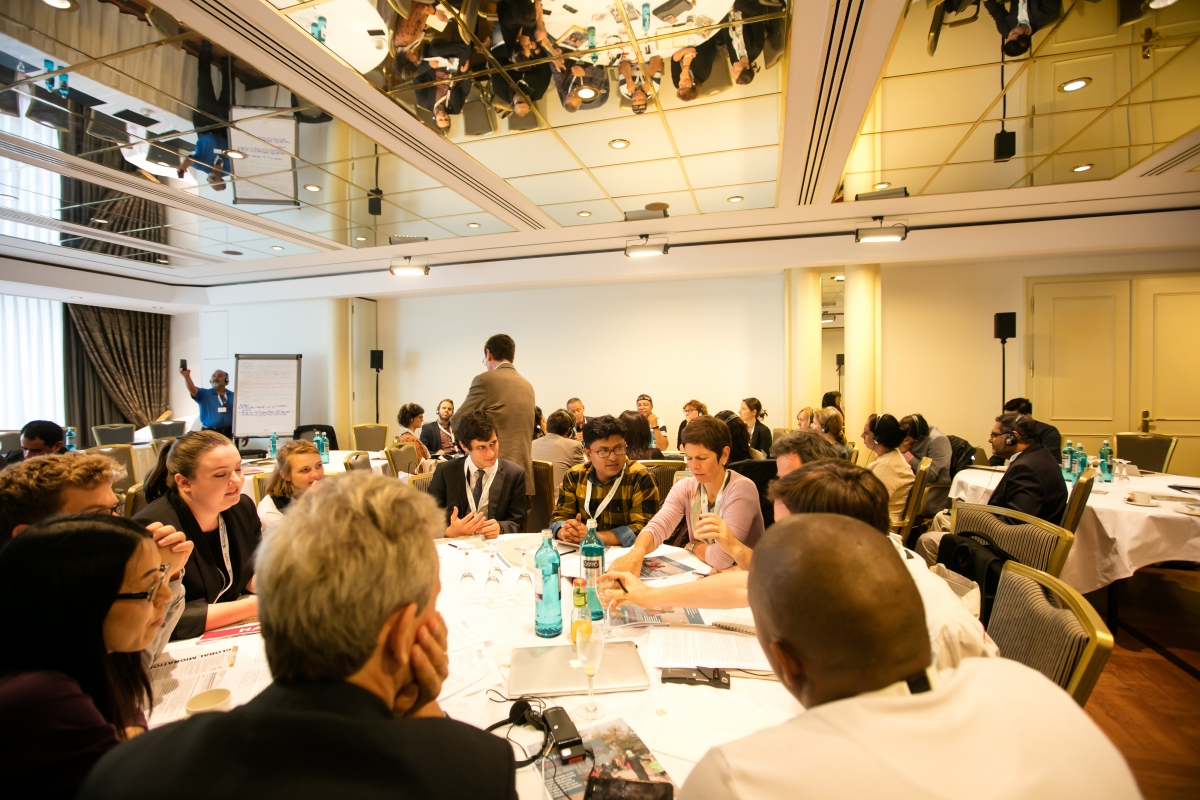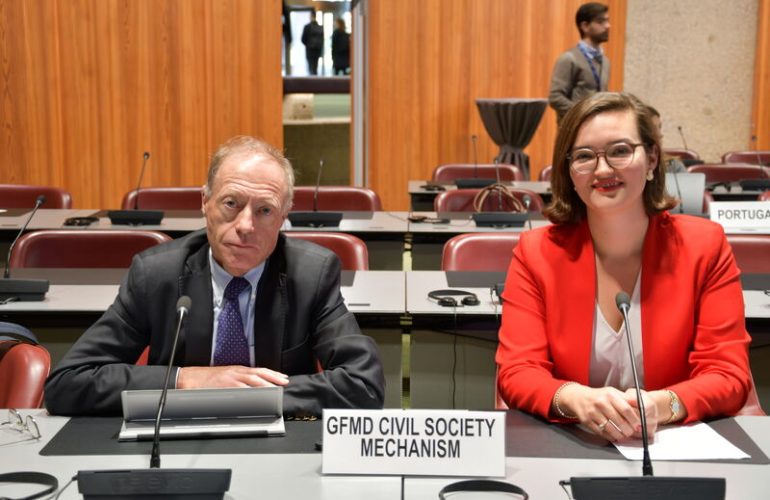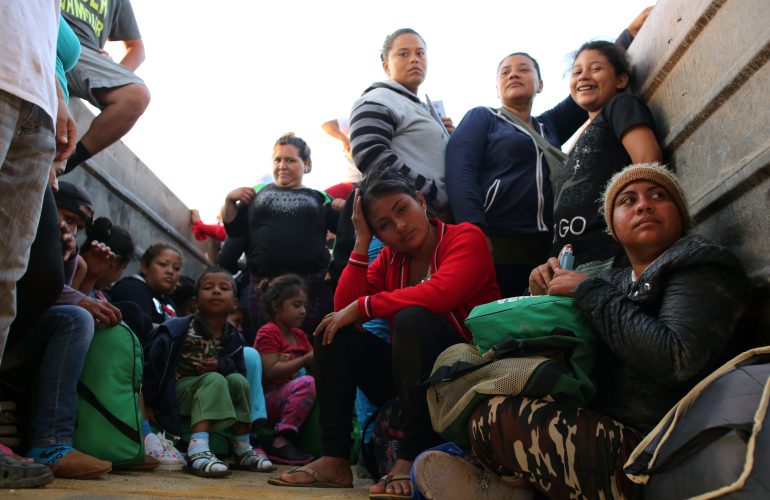Taking Stock of the GFMD 2017: Key Civil Society Recommendations and Follow-Up

Following a “Walls come down!” rally at the famous Brandenburg Gate, where the Berlin wall was torn down after almost 30 years of keeping people apart, over 250 civil society leaders from around the world—a majority migrants, refugees or the children and grandchildren of migrants and refugees—met during the Civil Society Days of this year’s Global Forum on Migration and Development in Berlin, 28 June – 1 July 2017.
The aim of this year’s Civil Society Days was to build plans and recommendations for the states-led process currently underway to develop a new “Global Compact for Safe, Orderly and Regular Migration.” This follows the unanimous agreement by all 193 Member States of the UN last year to develop the Compact for adoption at an international conference in September 2018.
Working closely with an International Steering Committee of civil society, ICMC-MADE (Migration and Development Civil Society Network) organised the two Civil Society Days, and, together with the German government Chair of the GFMD, also co-organized a third, full day of “Common Space” that brought the representatives of civil society together with senior officials of 140 governments to consider civil society’s recommendations and discuss both shared and divergent interests towards the new Compact.
This snapshot of events provides a detailed overview of the participants and sessions in the Civil Society Days. Among the most pressing issues identified by civil society delegates as essential to be included in the Global Compact on Migration, GFMD 2017 Civil Society Chair Ms. Wies Maas presented the following ten recommendations to the governments attending the GFMD:
- Governance and accountability: The Migration Compact should include ambitious but achievable goals and targets, as well as appropriate means of implementation and data collection. There are so many multilateral commitments to human rights, to labour rights, in conventions and treaties that are signed and binding and apply to migrants across the board. A Global Compact should focus on implementing these, not simply re-stating them;
- Children on the move: All policies about migrant children, whether accompanied or unaccompanied, should always ensure that their best interest is the primary consideration. To comply with clear international human rights standards, detention of children for immigration purposes should be prohibited at all times;
- Regularization and regular pathways to human mobility: More and better regular pathways for refugees and migrants need to be created, including increased resettlement places, humanitarian visas, private sponsorship programs, family reunification, student visa, and labour mobility. Such pathways reduce the vulnerabilities of migrants and refugees en route, in transit and at destination.
- Women’s agency and protection: Far from being vulnerable by nature, women may be exposed to particular vulnerabilities because of the situation they face. The Migration Compact should draw from the UN Women Recommendations on addressing the human rights of women in that compact;
- Ethical recruitment, decent jobs and labour mobility: The protection of the labour rights of migrants and reforms for ethical and transparent recruitment of migrant workers need to be stepped up urgently. The Global Compact for Migration should not become a Global Compact for Deportation;
- Return and reintegration: Return should always be voluntary, upholding the principle of non-refoulement at all times, and programmes and support structures should be put in place for returning migrants and their communities. Migration control should never be made a condition upon which development aid is dependent;
- Alternatives to detention and criminalization: There is a strong need for policies that end the criminalization of migrants, as well as for the implementation of alternatives to detention. Citizens and organizations that help undocumented migrants in need should be admired and protected, not criminalized;
- Firewalls and access to justice and other essential services: Government policies and practices must strictly separate immigration enforcement from access by migrants, regardless of their status, to justice, education, healthcare and other rights-based human services;
- Social inclusion and anti-xenophobia: National governments should address racism and xenophobia with policies and practices that protect and implement, without discrimination, the full spectrum of social, economic and political rights of migrants;
- Drivers of forced displacement: Local and national drivers of displacement, including climate change, need to be recognized and integrated into global, regional and national humanitarian, economic and development strategies.

These recommendations are key drivers in advocacy with States in the Global Compact process, to ensure a final commitment that takes into account the demands of civil society worldwide. The Core Group of civil society’s International Steering Committee for the GFMD is consolidating the recommendations into a comprehensive document, expected at the end of September 2017. Joining many others—and in ways similar to the consolidated 5-year 8-point Plan of Action that global civil society presented to states at the 2013 UN High-level Dialogue on International Migration and Development, the document will be an important tool of advocacy on the new Global Compact, both with states and with the office of the UN Secretary-General’s Special Representative for International Migration.
In addition, in connection with the wide range of global, regional and national consultations taking place in the Global Compact process, seven regional consultations are taking place during the second half of 2017 to bring together civil society stakeholders in the respective regions and discuss issues of specific importance, good practices and joint efforts for the Global Compact process.
For a more detailed overview of the recommendations, read the 5-page booklet or the 3.5-page presentation of GFMD 2017 civil society recommendations to governments by GFMD 2017 Civil Society Chair Ms. Wies Maas.
ICMC has organized the GFMD Civil Society Days since 2011, through the MADE Network-coordinated GFMD Civil Society International Steering Committee. The next GFMD Civil Society Days will take place in Morocco in December 2018.


